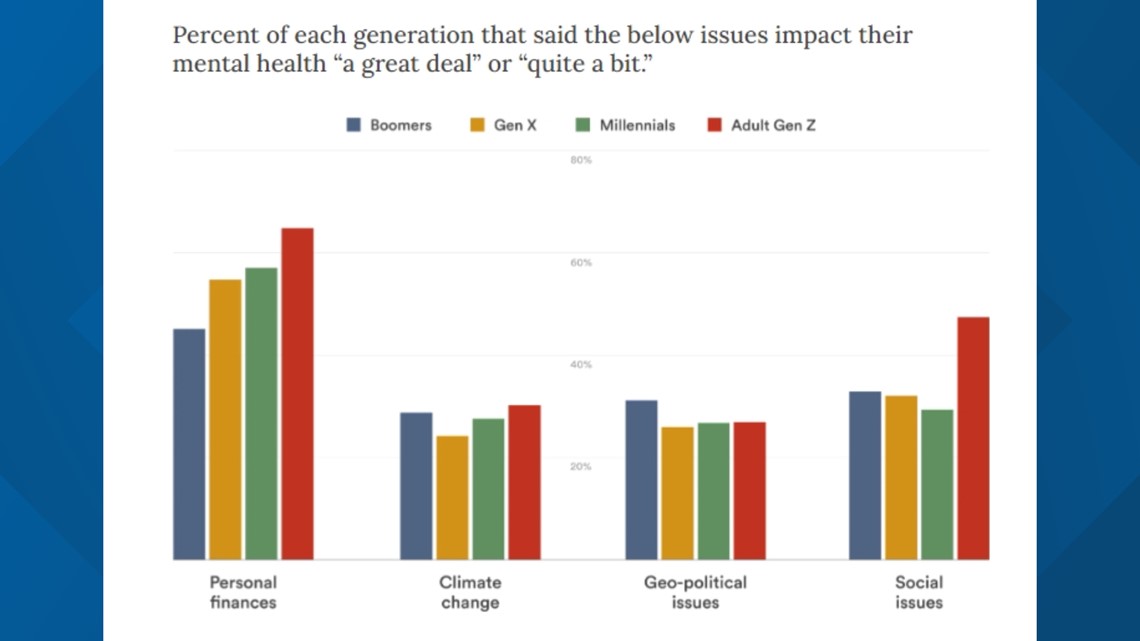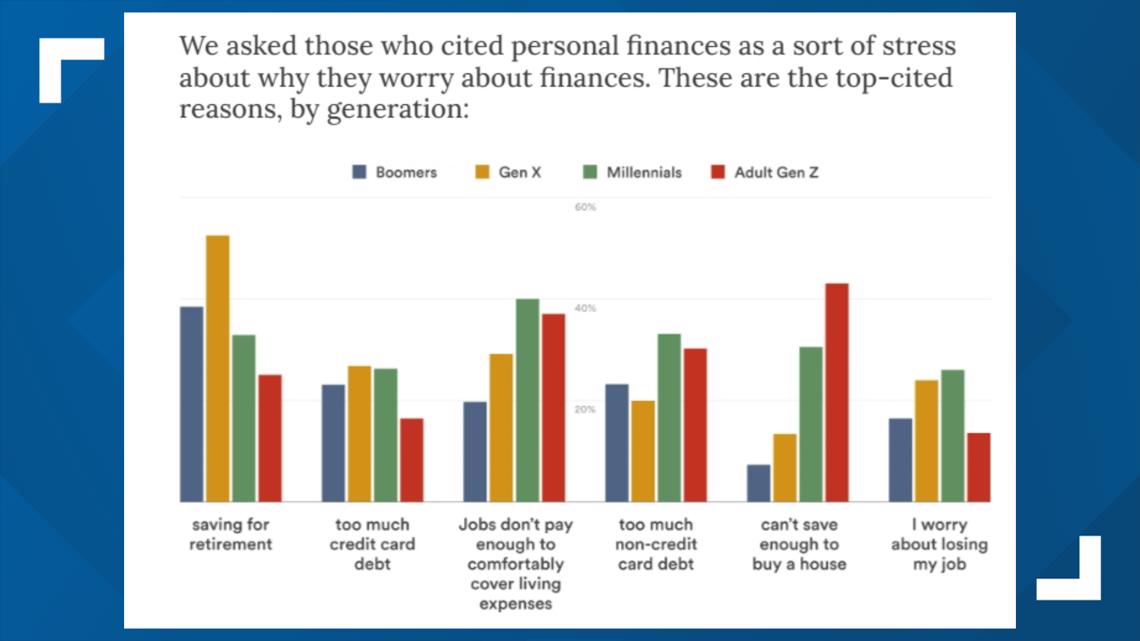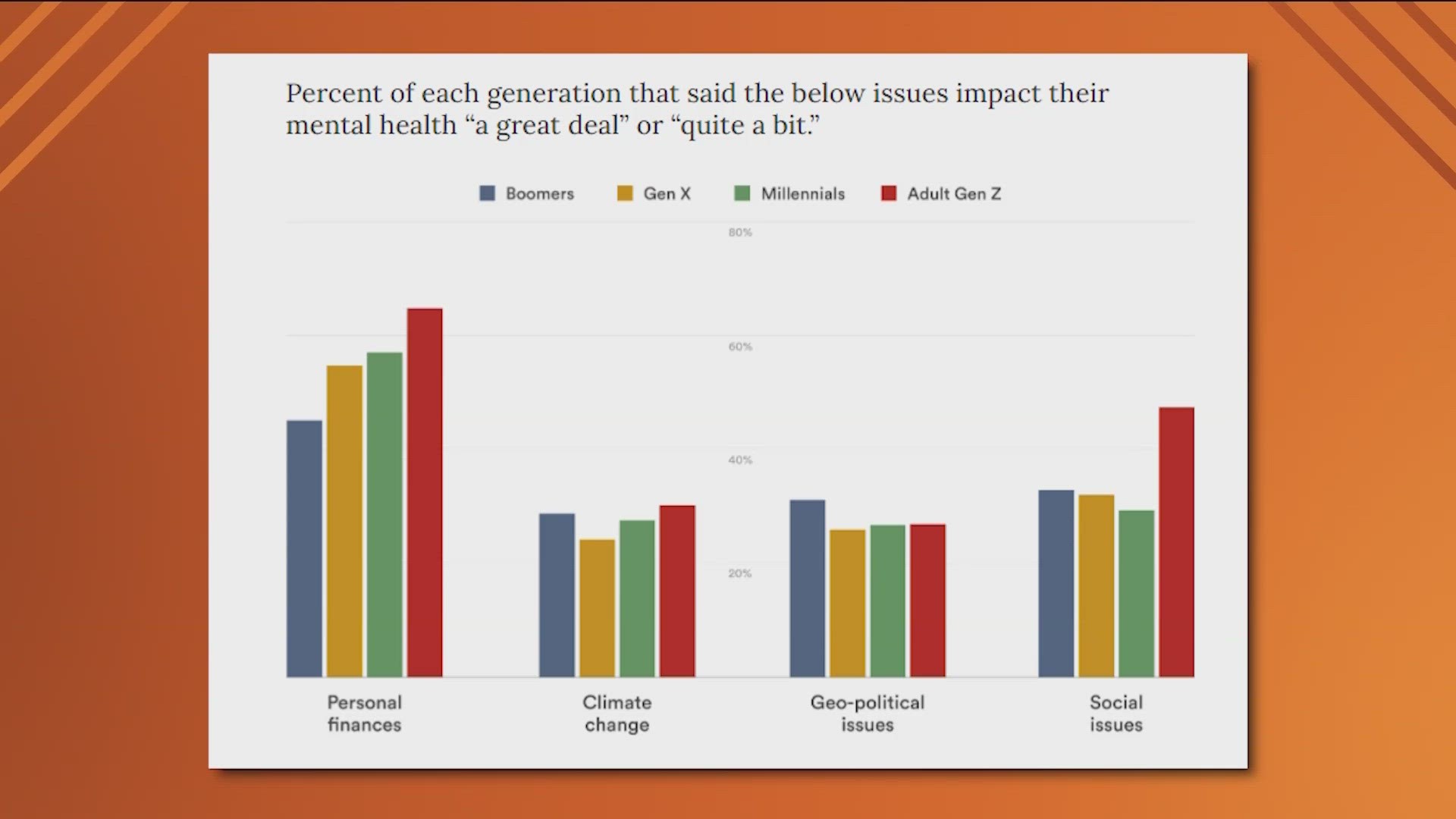AUSTIN, Texas — May is recognized as Mental Health Awareness Month, and a new personal finance study from Point shows how fear around personal finances can impact mental health.
The study specifically shows the toll financial stress is having on Gen Z.
According to the Pew Research Center, Gen Z applies to anyone born after 1996.
The Point study asked 1,085 people ages 21 to 80 who were working full or part-time, or looking for work, about the impact different stressors had on their mental health. Out of those surveyed, 64% of Gen Z said personal finance has the biggest impact on their mental health.
That's more than any other generation, including baby boomers, Gen X and millennials.


As a generation, Gen Z is known to have a reputation of caring and activism. According to the study, while they are the generation that says social issues impact their mental health the most, even more cited personal finance as having the biggest impact on their mental health.
"The young end of the millennials, they've been in the workforce for, you know, 10 years. So they've had a chance to save and build their savings and maybe buy a house, build some equity in their home, save for retirement, things like that. The young Gen Z-ers, or the oldest Gen Z-ers, are just getting into the workforce still," said Amanda Woolley, communications lead for Point.
Other factors that are contributing to Gen Z stress are saving for retirement and that they aren't able to save enough to buy a house.
All the generations were worried about debt, with boomers and Gen X more likely to worry about credit card debt. About one-third of millennials and Gen Z said they have too much non-credit card debt.


It was also found that women overall carry a bigger burden when it comes to stress about personal finances compared to men. Point found that nearly 60% of women said personal finances impact their mental health “a great deal” or “quite a bit,” compared with about 45% of men.
As far as solutions to the financial stress, Point found that Gen Z is reaching towards social media to seek out financial advice.
"They're getting that advice from TikTok. But make sure it's from a trusted source, talking to a professional building that budget," Woolley said. "A lot of folks also pointed to getting some sort of side hustle going so that they could build up more of those reserves and feeling more secure in their finances."
Other solutions included cutting out non-essential spending, as that was the solution for all generations concerned about finances. Working out was reported as the most popular way to alleviate stress, and about 16% of respondents said they got a pet to help manage their stress.
The survey was conducted from April 28 to April 30.

